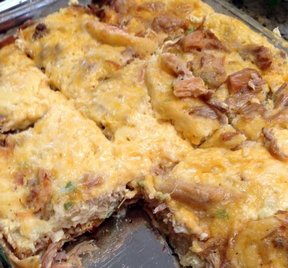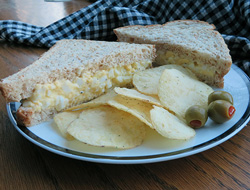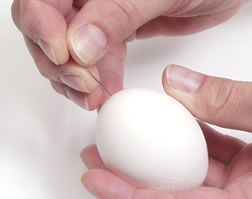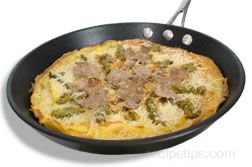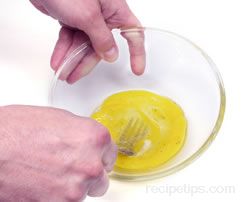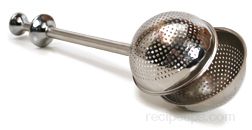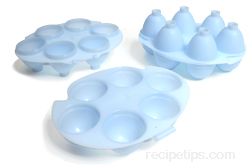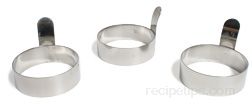Loading
Similar Content to: Cooked
back to Cooked
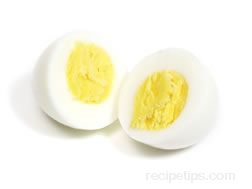
A type of egg that is cooked in the shell until the yolk and the white are completely solid. In order to accomplish this use fresh eggs that are warmed to room temperature. Warming the eggs assists to keep them from cracking. If they have been refrigerated, they can be warmed by placing the egg in a bowl of warm water for 3 to 5 minutes. When ready, the egg or eggs are placed as a single layer in a pan of water that is approximately 1 to 2 inches deeper than the layer of eggs. The pan may be uncovered or partilally covered with a lid and the water is brought to the boil. The pan is removed from the heat and covered completely for about 15 minutes to complete the cooking process. The egg is then rinsed under cold water or placed in a bowl of cold water to prevent any further cooking.
When making hard cooked eggs, use caution to not over cook the egg, otherwise the shell may crack or a reaction may occur between the sulfur in the white and the iron in the yolk to create a layer of dull green around the yolk. If the shell begins to crack while being heated, add a half a tablespoon of salt for each quart of water in order to reduce the time it takes for the egg white to denature so it hardens and is less likely to seep out the crack. This type of egg is also referred to as "hard boiled egg." To determine if an egg has been hard-boiled, set an egg on a counter and spin it around on its end. If the egg is uncooked, the yolk will wobble, causing the egg to stop spinning immediately. If the egg is cooked, it will spin continuously in a controlled spin.

Loading
Advertisement
Advertisement



